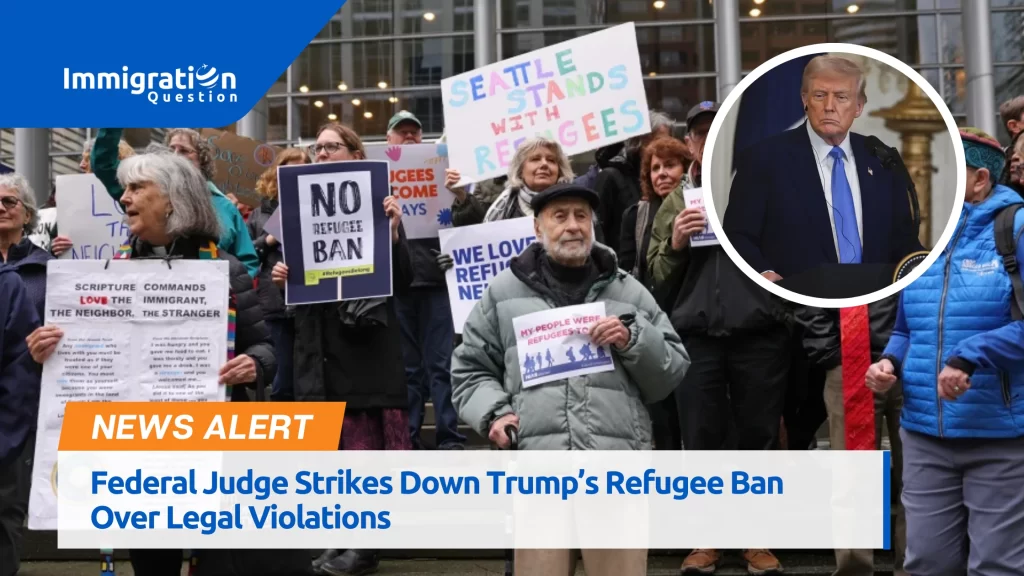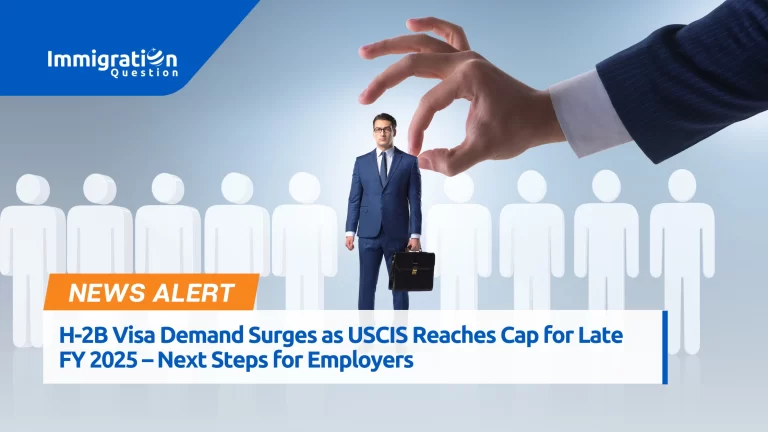A Washington federal judge has issued preliminary injunction against President Donald Trump’s executive order suspending the U.S. refugee program and withholding federal funds for refugee services.
The court’s decision follows concerns about the immediate harm caused to refugees stranded in precarious situations, as well as the legal overreach of the administration’s directive.
Legal Challenge and Court Ruling
U.S. District Judge Jamal Whitehead ruled that while the president has significant discretion under the Immigration and Nationality Act, this authority is not without limits. The judge emphasized that the executive order contradicts congressional statutes governing refugee admissions, particularly the Refugee Act of 1980. The court found that the order effectively nullifies the legislative framework set by Congress, rather than operating within its legal bounds.
In his ruling, Judge Whitehead highlighted the tangible, irreparable harm suffered by refugees and resettlement agencies due to the abrupt halt in admissions. He cited cases of families separated, individuals left in danger after selling their belongings in preparation for relocation, and resettlement agencies struggling with layoffs and financial instability.
Government’s Defense and Counterarguments
During oral arguments, the U.S. Department of Justice (DOJ) defended the executive order, arguing that the president has the constitutional authority to suspend refugee admissions if deemed necessary for national interest. The government maintained that previous administrations, from Ronald Reagan to Barack Obama, have exercised similar powers under the same legal provision.
Judge Whitehead, however, questioned whether the harm faced by refugees and resettlement agencies was self-evident, challenging the DOJ’s assertion that there was no significant legal basis for the injunction.
The court pointed out that the executive order lacked sufficient justification and failed to follow proper administrative procedures, violating federal regulations.
Refugee Advocates and Plaintiffs’ Arguments
The plaintiffs, including nine individual refugees and three resettlement organizations, argued that the sudden suspension of the refugee program disproportionately affects individuals who had already been approved for relocation. Among those impacted are Afghan and Iraqi allies who had assisted U.S. forces and were awaiting travel.
Legal representatives for the plaintiffs contended that the administration’s directive bypassed the established refugee admission process and undermined statutory protections.
Attorneys for the plaintiffs further stressed that the executive order’s rationale—citing national security and resource allocation concerns—was an attempt to circumvent Congress’ detailed refugee framework. They asserted that the government failed to present substantial evidence that processing refugee applications posed any immediate risk to national security or resource stability.
Broader Implications and Judicial Precedent
Judge Whitehead referenced the Supreme Court’s ruling in Trump v. Hawaii, which upheld broad presidential authority over immigration restrictions. However, he noted that such authority cannot override existing federal laws. The judge expressed skepticism regarding the government’s claims that suspending refugee admissions was a necessary national security measure, particularly given the structured screening process established by the Refugee Act.
The case, Pacito et al. v. Trump et al., marks another legal challenge to Trump’s immigration policies, which have repeatedly faced judicial scrutiny. Refugee advocates argue that the executive order echoes previous attempts to dismantle the U.S. Refugee Admissions Program (USRAP) and restrict pathways to safety for those in need.
Looking Ahead – Federal Judge Strikes Down Trump’s Refugee Ban Over Legal Violations
The court’s decision to grant a preliminary injunction means that refugee admissions will continue while the case proceeds through the judicial system. Legal experts anticipate further legal battles over the scope of executive authority in immigration policy. Meanwhile, refugee resettlement agencies and affected individuals await a resolution that will determine their futures. The judicial process will continue to examine the legality of the Trump administration’s refugee restrictions.
To stay updated and informed, watch our news section or drop your immigration queries on immigrationquestion.com and get responses from professional attorneys.










